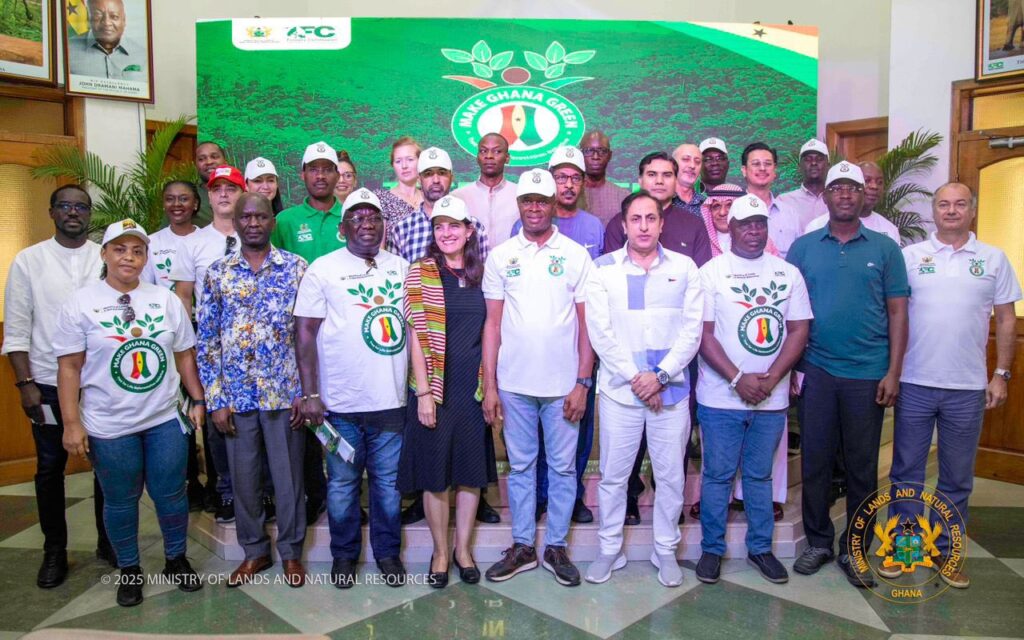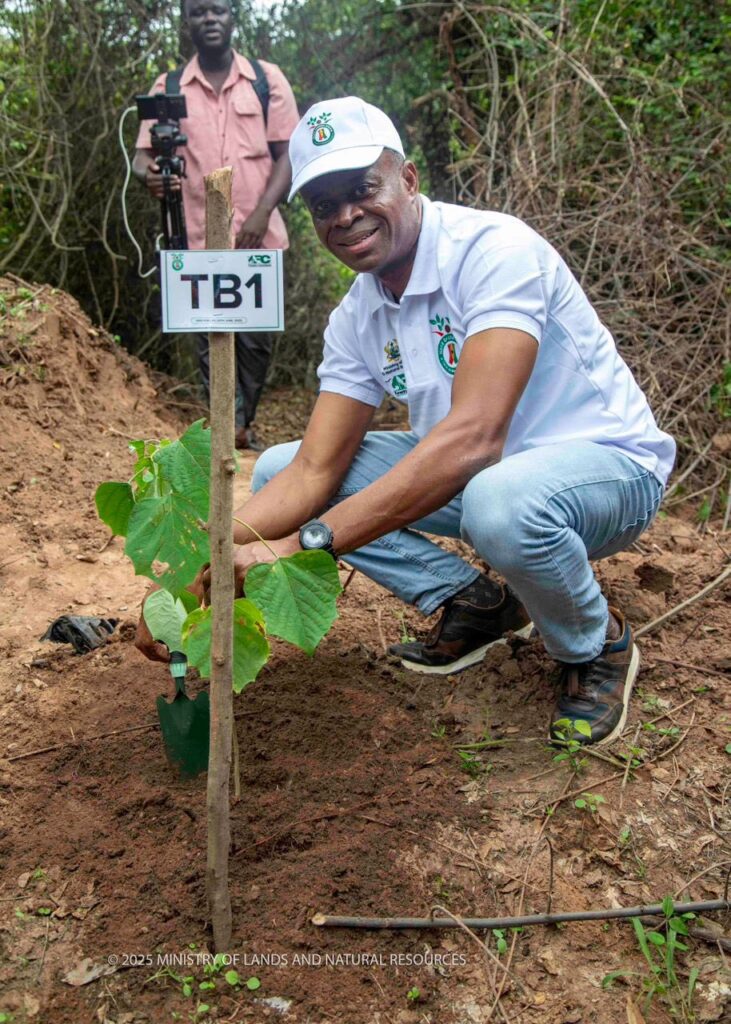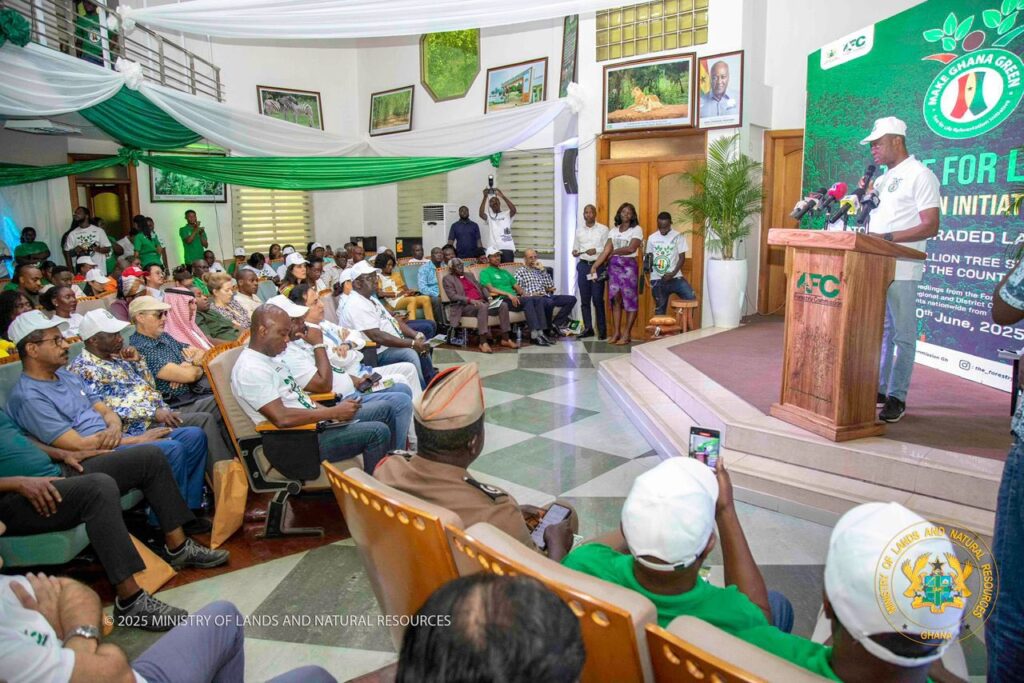The Ministry of Lands and Natural Resources has renewed calls for international cooperation in Ghana’s intensifying fight against illegal mining, with Deputy Minister Hon. Sulemana Yusif urging the global community to step up technical and financial support to complement national efforts.
Speaking on behalf of the Minister for Lands and Natural Resources, Hon. Emmanuel Armah-Kofi Buah, during a commemorative tree planting ceremony under the Tree for Life Reforestation Initiative, the Deputy Minister described illegal mining as an evolving threat that undermines Ghana’s environmental sustainability and economic stability.
“The transboundary nature and sophistication of illegal mining operations necessitate stronger international partnerships”
Hon. Sulemana Yusif, Deputy Minister of Lands and Natural Resources
The government’s anti-galamsey strategy, he noted, rests on five pillars: reforming the mining licensing regime, strengthening enforcement mechanisms, reclaiming and restoring degraded lands, providing alternative livelihoods to affected communities, and deepening stakeholder engagement both locally and globally.

According to the Ministry, despite significant progress in community mobilization and regulatory reforms, illegal mining continues to ravage water bodies and farmlands while posing long-term dangers to biodiversity and food security. The call for international support is thus framed not as a handout, but a shared responsibility in protecting global environmental heritage.
“The event, held as part of the Tree for Life Reforestation Initiative, was more than a ceremonial act. It served as a policy platform to draw attention to Ghana’s broader green development agenda, particularly in the lead-up to June’s Green Month campaign”
Ministry of Lands and Natural Resources
Launched in March 2025, Tree for Life aims to plant 30 million seedlings by the end of the year. The campaign’s objectives include urban greening, biodiversity conservation, land restoration, and the creation of sustainable green jobs for communities most affected by the consequences of illegal mining.
“June is Green Month, and this is a national call to action,” the Ministry for Lands and Natural Resources stated in its public update.

The Deputy Minister emphasized that Ghana’s approach to sustainability goes beyond tree planting. It is about cultivating a culture of environmental responsibility and aligning it with economic resilience. He expressed confidence that with committed global partnerships, the gains made under the current administration could be further consolidated.
Chairman of the Forestry Commission Board, Professor Martin Oteng-Ababio, also addressed participants and praised the government’s efforts, particularly the “Ministry’s coordination of policy, law enforcement, and ecological restoration.” He welcomed the presence and backing of the international community at the event and urged further cross-border collaboration.
“Today is a symbol of renewed commitment to environmental stewardship,” Prof. Oteng-Ababio stated.
The diplomatic corps was represented by Lebanese Ambassador to Ghana, H.E. Maher Kheir, who reaffirmed support for Ghana’s green development efforts. He underscored the importance of environmental protection as a unifying issue across political, national, and economic boundaries.
According to the Ministry, Green Month mobilization involves the active participation of schools, religious institutions, private companies, and international organizations in a unified front to restore degraded ecosystems.

The campaign integrates reforestation with educational outreach, ensuring young people understand the stakes involved in environmental degradation and climate change.
The Ministry reiterated that while national agencies are ramping up enforcement and restoring damaged lands, long-term change will require global backing, especially in areas like intelligence sharing, tracking illicit financial flows linked to illegal mining, and sustainable technology transfer.
The government of Ghana remains optimistic that the Tree for Life campaign and its broader sustainability vision will attract not only goodwill but actionable commitments from both bilateral and multilateral partners.
The administration continues to prioritize environmental governance as a pillar of economic policy and national renewal.



















